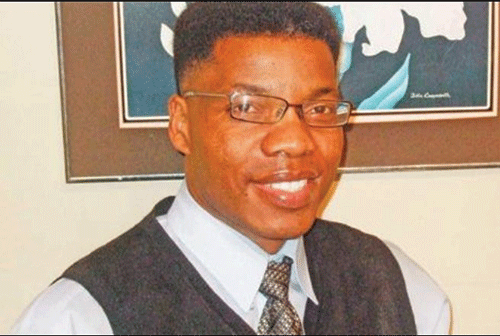Dr Joseph Mulife Muchali
Today, the question has become a polarised debate, whose fumes do not want to simmer. With all considerations, does Namibia qualify to be called an upper-middle income country? No! Given the reality on the ground, it should not be classified as such. Indeed, facts do not lie.
But then, the following war of words gives a glimpse of the ensuing debate by those in government, versus those from the outside – the retired breed of politicians and self-made business tycoons and political activists.
“It is stupid to go around, telling people that we are poor,” says Helmut Angula, Namibia’s former cabinet minister.
Or is it not foolish to claim that we are rich, yet poor as a church mouse, as some would want to argue?
Evidently, many Namibians do not have proper housing; they lack proper medical institutions and proper school infrastructure.
Equally, the high levels of destituteness seen in communities and the rising unemployment figures tell a story of their own.
The likes of the former cabinet minister of mines and energy must tell the citizenry who owns Namibia’s natural resources of uranium, diamonds, gold and copper mines.
Does Namibia own those rich mining sectors, or is the country only having next to nothing ownership – surviving on royalties and taxes?
Truth is, the mines are not in the hands of Namibians, so we cannot claim to be rich.
Certainly, those are the very rich resources in the Land of the Brave that would have changed people’s lives for the better.
Sadly, it is not happening, as many Namibians find themselves hopeless and still carrying the colonial hangover that robbed the masses of their riches.
That brings us to the misclassification of Namibia as an upper-middle income country. The classification is defined as a country with a Gross National Income (GNI) per capita of US$4 096 to US$12 695. The calculation of GNI, which is the Gross Domestic Product divided by the country’s population, is very fictitious.
For over 90% of ordinary Namibian citizens, that is a far cry from anything they have seen with their naked eyes.
Surely, in a dream, one would harvest millions from trees or at most pick a sac filled with bank notes – all real until the dream lapse. There is simply no way the majority of Namibians could be pocketing those amounts.
Therefore, one will agree with President Geingob’s argument to the outside world – put across different platforms on the global stage, especially the likes of the World Bank (WB) and International Monetary Fund (IMF), where he says the country is unfairly classified. He is simply stating a fact.
If one were to study the Geingob position, it is important to understand some key distinctions that make Namibia not fit the classification.
Indeed, any rational mind would question the classification of Namibia as an upper-middle income country, based on hard evidence.
For example, the World Bank’s revised 2023 statistics have made claims of a 51% poverty rate in Namibia. The World Food Programme pronounced that 14% of the population faces a food crisis.
In addition, compared to other upper-middle-income countries, Namibia has the lowest gross national income per capita; the country has the lowest numbers of school-going children, so is the lowest life expectancy.
Digging further, Namibia is labelled as one of the most unequal countries in the world. Meaning, the distribution of resources is skewed and only benefits a small percentage of the population.
With such a gloomy picture of Namibia’s reality, should the political leadership not be at the forefront, telling the truth rather than skidding with lies?
Is the former prime minister, Nahas Angula, right by claiming that the Bretton Wood Institutions are doing Namibia a favour by classifying it as an upper-middle income country?
Meaning, from the former prime minister’s thinking, if Namibia was re-classified as a lower-middle income country, then it would go on a borrowing and begging spree as if there is no tomorrow.
In itself, that is a wrong mindset, as any responsible government borrows for a reason.
As things stand, Namibia needs so many things – road infrastructure, housing, better hospitals – that getting soft loans or other grants could have lifted many from the shackles of poverty, hunger and homelessness.
Surely, if there is an opportunity to access those funds, why shoot ourselves in the foot? Borrowing can only be wrong if it is meant for self-enrichment and irresponsibly burdening a nation with debt that would be squandered.
In thirty years, Namibia cannot fix the wrongs of apartheid and colonialism committed for a century. It will need a concerted effort at home and that of good Samaritans to build the Namibian House.
If anything, President Geingob is doing what any visionary leader would do. There is nothing wrong with seeking assistance from the international community and telling the Namibian story as it should be because it is wrong for Namibia to be classified as an upper-middle income country when the reality speaks the opposite.
Overall, for the sake of nation-building, critics should offer alternatives or proposed solutions to their concerns because constructive criticism is what builds a nation.
The idea of pulling others down is just outdated!
* Dr Joseph Mulife Muchali is a keen scholar of political studies. The views expressed in this article are his own and do not represent anyone or any organisation.
– 081 868 0628



